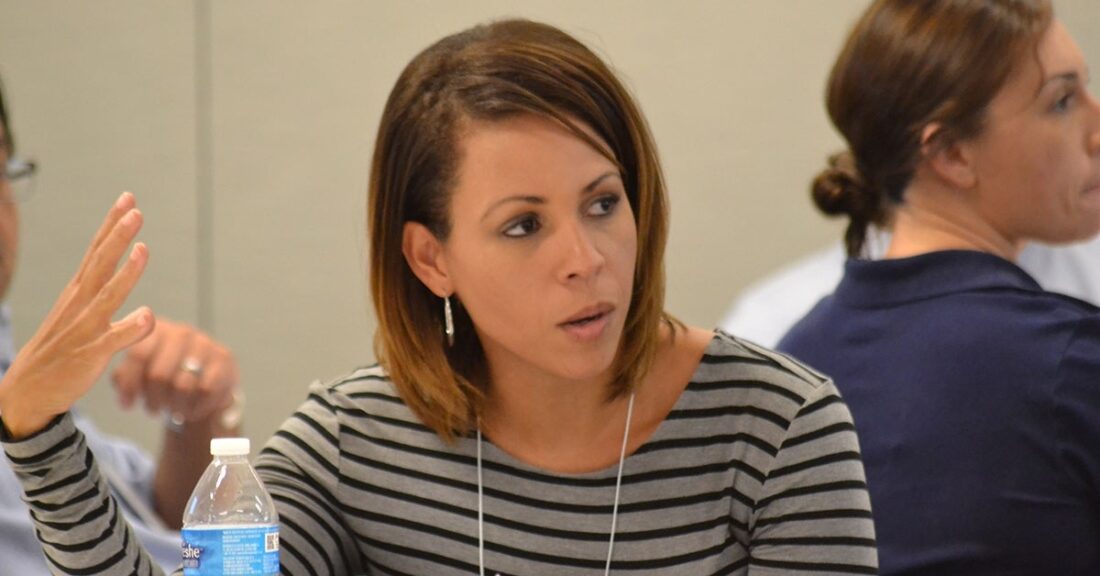Apply for the 2022 Reimagining Juvenile Justice Training-for-Trainers Institute

A professional development initiative for state and local agencies serving youth involved in the justice system and their partners is accepting applications for the 2022 Reimagining Juvenile Justice (RJJ) Training-for-Trainers Institute. Sponsored by the Annie E. Casey Foundation and delivered by the School & Main Institute, this training opportunity is based on positive youth development, which encourages youth-serving professionals to identify the positive aspects of a young person’s life and build on those strengths and interests.
Applications must be received by 5 p.m. ET, July 22, 2022. Interested applicants should watch a one-hour webinar from June 28 to prepare for the process.
The RJJ Training-for-Trainers Institute is open to representatives of state or local public systems serving youth involved in the justice system, such as courts, probation agencies or law enforcement. Preference will be given to applications that are submitted jointly by a public system and a local non-system partner. Applicants should be seeking to improve system and youth outcomes by providing alternatives to justice system involvement and incarceration; instilling positive programs, support and opportunities so that young people can develop to their full potential; and increasing cross-system collaboration.
The 2022 institute is the fifth iteration of the RJJ curriculum, which was piloted by SMI in Massachusetts in 2016, replicated at the Pima County, Arizona, JDAI® site in 2018 and expanded to a national train-the-trainer institute in 2019 and 2020.
The RJJ 5.0 Training-for-Trainers (T4T) Institute in 2022
In 2022, the RJJ Training-for-Trainers Institute will be delivered in two phases to teams from up to 12 jurisdictions.
- Phase 1 is for three to five trainers per jurisdiction. This phase will be conducted virtually from Aug. 30, 2022, through Oct. 11, 2022. It includes a 60-minute “Intro to RJJ” orientation and six 90-minute facilitated virtual sessions held at weekly intervals that cover the six RJJ curriculum modules.
- Phase 2 is for two trainers per jurisdiction (each jurisdiction will select two from among its attendees of Phase I). The two trainers will attend an in-person 2½-day Training-for-Trainers (T4T) Institute in Denver Oct. 18–20, 2022. At the Institute, trainers will study adult teaching and learning principles; hear from current RJJ trainers about their own experiences with implementation and results; and develop RJJ roll-out plans for local delivery. Following the RJJ T4T Institute, the jurisdiction’s team of trainers will be paired with a national coach to help support local implementation strategies.
Selected trainers will deliver the six RJJ curriculum modules in their locality between November 2022 and April 2023 and provide evaluations and feedback to the Casey Foundation and School & Main.
The RJJ training curriculum is based on adolescent development research demonstrating that youth thrive in a positive environment with the support of caring adults. Through 2021, RJJ trainers have delivered the course to 800 professionals representing a broad array of agencies and organizations, including probation, juvenile detention, child welfare, youth and family services, courts, local law enforcement, school districts, community-based agencies and others involved in the youth justice system.
“Many of the jurisdictions that have implemented the RJJ training over the past few years have made significant progress incorporating the principles of positive youth development into their local policies and practice,” said David E. Brown, a senior associate at the Foundation. “Many have changed the way they interact with young people and their families, expanded constructive opportunities and built or strengthened partnerships with other youth-serving systems.”
One of the participants, Corey Shrieve, the JDAI coordinator in Ohio’s Department of Youth Services, said RJJ training is “about shifting peoples’ beliefs from punishment and compliance to providing positive incentives that promote the growth of young people.” Says Shrieve: “We can see this change happening in probation and in the courts’ willingness to divert more kids than ever before.”
For further information, contact David E. Brown at debrown@aecf.org.






